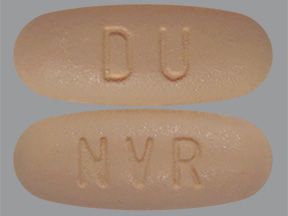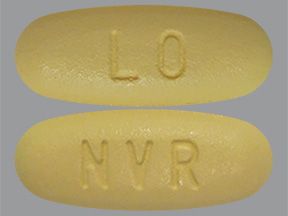If you have a certain kind of lung cancer, your doctor might suggest Tabrecta as a treatment option. It’s a prescription drug used to treat certain kinds of non-small cell lung cancer (NSCLC) in adults. Tabrecta is prescribed for NSCLC that has spread outside the lungs or specific kinds of tumor mutations.
Tabrecta comes as a tablet you swallow. The active ingredient in this medication is capmatinib. (This is the ingredient that makes Tabrecta work.)
Tabrecta is a targeted cancer therapy and isn’t a chemotherapy drug. It belongs to a group of drugs called kinase inhibitors.
This article describes the dosages of Tabrecta, as well as its strengths and how to take it. To learn more about Tabrecta, see this in-depth article.
Note: This chart highlights the basics of Tabrecta’s dosage. Be sure to read on for more detail. Keep in mind that this article covers Tabrecta’s standard dosing schedule, which is provided by the drug’s manufacturer. But always follow the dosing instructions provided by your doctor.
| Tabrecta form | Tabrecta strengths | Tabrecta usual dosage |
| tablet | • 150 milligrams (mg) • 200 mg | 400 mg twice per day |
Below is information about Tabrecta’s recommended dosage for non-small cell lung cancer (NSCLC).
What is Tabrecta’s form?
Tabrecta comes as a tablet you swallow.
What strengths does Tabrecta come in?
Tabrecta tablets come in two strengths:
- 150 milligrams (mg)
- 200 mg
What is the usual dosing schedule for Tabrecta?
The information below describes dosages that are commonly prescribed or recommended. But be sure to take the dosage your doctor prescribes for you. They’ll determine the best dosage to fit your needs.
The recommended dosage for treating certain kinds of NSCLC in adults is 400 mg twice daily.
Is Tabrecta prescribed long term?
Yes, Tabrecta is usually prescribed as a long-term treatment. If you and your doctor determine that Tabrecta is safe and effective for you, you’ll likely take it long term.
Tabrecta comes as a tablet you swallow whole. Do not chew, break, or crush these tablets.
You’ll likely take them two times per day about 12 hours apart. You can take them with or without food.
If you have trouble swallowing tablets, see this article for tips on how to take this form of medication.
For information on Tabrecta expiration, storage, and disposal, see this article.
Accessible drug containers and labels
If you have trouble reading the prescription label on your medication, tell your doctor or pharmacist. Some pharmacies provide medication labels that:
- have large print or use braille
- feature a code you can scan with a smartphone to change the text to audio
Your doctor or pharmacist may be able to recommend pharmacies that offer these accessibility features if your current pharmacy doesn’t.
If you have trouble opening medication bottles, let your pharmacist know. They may be able to supply Tabrecta in an easy-open container. They may also have some tips that can help make it simpler to open the drug’s container.
If you miss a dose of Tabrecta, skip the missed dose. Do not take another dose to make up for the missed dose. Take your next dose at the usual time.
If you vomit, do not take another dose of Tabrecta. Take your next dose at the usual time.
If you need help remembering to take your dose of Tabrecta on time, try using a medication reminder. This can include setting an alarm or downloading a reminder app on your phone.
Do not take more Tabrecta than your doctor prescribes. Taking more than this can lead to serious side effects.
What to do in case you take too much Tabrecta
Call your doctor right away if you think you’ve taken too much Tabrecta. You can also call 800-222-1222 to reach the American Association of Poison Control Centers, or use its online resource. But if you have severe symptoms, call 911 (or your local emergency number) immediately or go to the nearest emergency room.
The sections above describe the usual dosages provided by the drug’s manufacturer. If your doctor recommends Tabrecta for you, they’ll prescribe the dosage that’s right for you.
Remember, you should not change your dosage of Tabrecta without your doctor’s recommendation. Only take Tabrecta exactly as prescribed. Talk with your doctor if you have questions or concerns about your dosage.
Here are some examples of questions you may want to ask your doctor:
- Will my doctor change my dosage of Tabrecta if I take certain other medications?
- Does my dosage of Tabrecta need to change if I have kidney or liver problems?
- Do adults ages 65 years or older need a different dosage of Tabrecta?
Q:
If I have bothersome side effects, will my doctor change my dosage of Tabrecta?
AnonymousA:
It’s possible you may experience side effects while taking Tabrecta. If they become bothersome, talk with your doctor. They may reduce your dose of Tabrecta to help ease your side effects.
Your doctor may also have you get blood tests done and may reduce your dose of Tabrecta based on the results. Depending on your side effects, they may have you pause Tabrecta treatment for a short time. Or they may have you stop taking the medication completely.
If you still have bothersome side effects or abnormal blood test results after your dose is reduced, talk with your doctor. They’ll likely have you stop taking Tabrecta and recommend a different medication.
The Healthline Pharmacist TeamAnswers represent the opinions of our medical experts. All content is strictly informational and should not be considered medical advice.Disclaimer: Healthline has made every effort to make certain that all information is factually correct, comprehensive, and up to date. However, this article should not be used as a substitute for the knowledge and expertise of a licensed healthcare professional. You should always consult your doctor or another healthcare professional before taking any medication. The drug information contained herein is subject to change and is not intended to cover all possible uses, directions, precautions, warnings, drug interactions, allergic reactions, or adverse effects. The absence of warnings or other information for a given drug does not indicate that the drug or drug combination is safe, effective, or appropriate for all patients or all specific uses.


